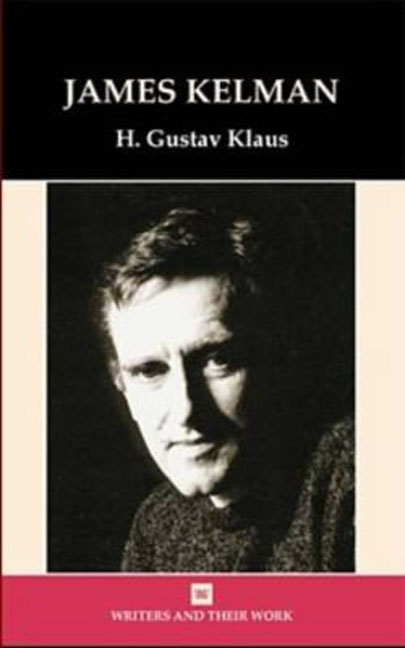Book contents
- Frontmatter
- Contents
- Acknowledgements
- Biographical Outline
- References
- 1 Introduction: ‘Fucking Realism’
- 2 Footloose in Country and City: The Early Short Stories
- 3 Unsettlingly Settled: The Busconductor Hines and A Chancer
- 4 Authority Flouted: The Plays and Essays
- 5 Contacts, Tensions, Emotions: Greyhound for Breakfast and The Burn
- 6 Under Surveillance, Resisting: A Disaffection; How Late it Was, How Late and Translated Accounts
- 7 Postscript: You Have to be Careful in the Land of the Free
- Notes
- Bibliography
- Index
7 - Postscript: You Have to be Careful in the Land of the Free
- Frontmatter
- Contents
- Acknowledgements
- Biographical Outline
- References
- 1 Introduction: ‘Fucking Realism’
- 2 Footloose in Country and City: The Early Short Stories
- 3 Unsettlingly Settled: The Busconductor Hines and A Chancer
- 4 Authority Flouted: The Plays and Essays
- 5 Contacts, Tensions, Emotions: Greyhound for Breakfast and The Burn
- 6 Under Surveillance, Resisting: A Disaffection; How Late it Was, How Late and Translated Accounts
- 7 Postscript: You Have to be Careful in the Land of the Free
- Notes
- Bibliography
- Index
Summary
Kelman's sixth novel retains the extra-European setting of Translated Accounts, but reverts to a Glaswegian voice. As the title indicates, You Have to be Careful in the Land of the Free (2004) is set in the United States, picturing a ‘Skarrish’ expatriate on the eve of a visit ‘hame’. However, what is new in this voice is not only the mock American inflection – resulting from its owner's twelve-year stay in the country – but its narrative monopoly. There is now only the consciousness of the protagonist, the perspective of ‘a non-assimilatit alien’ on the margins of American society.
But poverty of condition in Kelman never means poverty of the mind. Already on the first page the narrator tells us that he could have read a book in the motel near the airport instead of opting for the night out. And later he confesses that while he made a meagre living from dead-end jobs in restaurants, bars, galleries and a security agency, his real ambition had been to write a political crime novel centred on a hero who ‘wasnay the usual apolitical right-wing hollywood prick, his sympathies went to the underdog, he was anti-cops and anti-robbers, antiauthoritarian, he was also a good anarchist; anti-sexist, antihomophobic, anti-racist, pro-justice, pro-truth, pro-asylum seeker, pro-immigration, pro-equality’ (p. 67). Alas, the ‘private- eye ditty’ never materialized. Like other things in Jeremiah Brown's life, it is a story of failure: ‘I wasnay able to get on with it ’ (p. 67). The reasons are unclear, but Kelman, never afraid of exposing a character's flaws, intimates here that political correctness in itself does not achieve much.
Within a couple of pages the novel stakes out a terrain familiar to Kelman readers. When the narrator describes himself – almost parodying a recurring type of character-drawing – as a ‘compulsive, obsessive, addictive personality, the usual’ (p. 2) we know what we are in for. From the drinking and (in the past also) smoking and gambling habits, to the whining, suicidecontemplating, railing and fantasizing moods, all the traits that we have come to associate with the author's male loners are there. Except that Jeremiah had for a time abandoned his solitary life by entering an extra-marital relationship and trying to become a ‘faimly man’, and his by turns tender, sentimental and self-reproachful memories of his ‘ex’ and the little daughter form one major strand of the novel.
- Type
- Chapter
- Information
- James Kelman , pp. 92 - 95Publisher: Liverpool University PressPrint publication year: 2004

